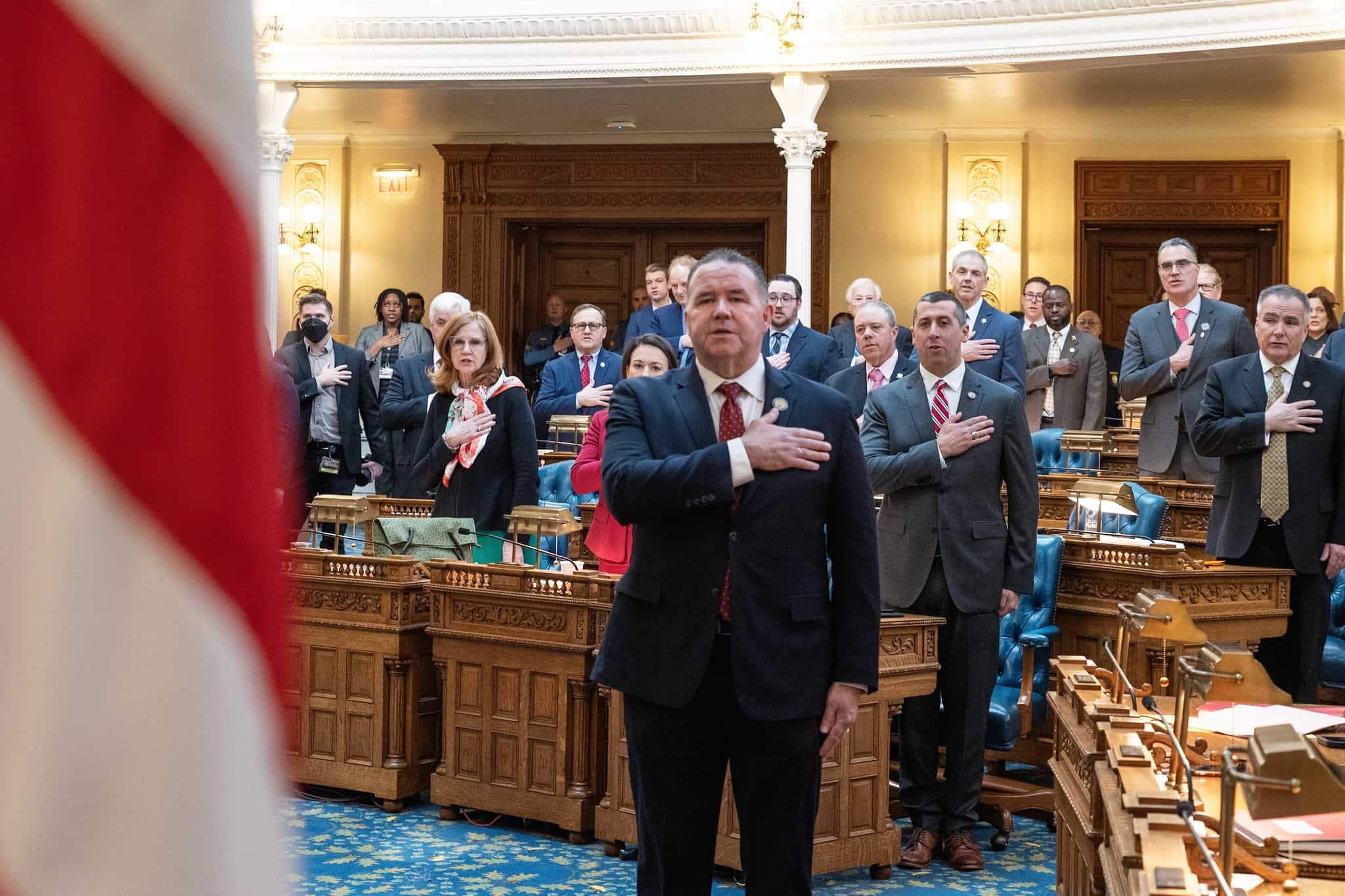By Assemblyman Alex Sauickie
By the time this is published, the Legislature will be on its traditional “budget break.” This means that most, if not all, other legislative activity pauses while the budget committees hold hearings on the governor’s budget proposal.
The question is whether, at the end of the process, taxpayers will get a break. Color me pessimistic.
As the state’s newest assemblyman, this is my first trip through the state budgeting process. It works like this:
First, the governor proposes a budget. This is traditionally done in conjunction with a speech to a joint legislative session. Gov. Murphy gave his at the end of February. Following that, official documents with details of the governor’s budget plan are released.
Then the budget committees of the Assembly and Senate hold hearings, usually starting with open public hearings for public comment and then proceeding to “departmental hearings,” when representatives of each state department go before the committees to present their parts of the budget proposal and answer lawmakers’ questions.
What happens next diverges into the official and the probable. Officially, the committees huddle with their own members and with each other, and consider all the testimony. They also receive and consider “budget resolutions” from legislators asking for specific changes to the budget proposal. Then they produce a budget bill based on the governor’s proposal but with changes the committees deem necessary or desirable.
But I suspect there’s a high probability of horse trading in closed rooms. My colleagues who were around for the last state budget season tell me that last year, $1.7 billion – yes, with a “b” – was added to the governor’s already high-spending proposal at the end of the process. I’m told a total of $3.5 billion was spent on pork over the previous three years.
There are things in the governor’s proposal that many in both parties can support. These include some tax breaks that will help people in specific circumstances and funding for a new State Police training facility.
But unfortunately, there will be plenty of votes against the final budget if it’s anything close to the current proposal. Simply put, despite the bits of tax relief noted above, the proposed budget is brutal for taxpayers, especially property tax payers. As part of that, it once again slashes aid to area schools, endangering school programs and jobs while passing more of the burden onto property tax payers.
I’ll save further comments on school aid for later, but this I have to address now because it’s so outrageous. The Jackson school district tells me it needs $11 million to avoid very serious consequences for its schools, but instead the proposed budget would cut $6.2 million on top of several years of cuts adding up to about $20 million. At the same time, the proposed state budget would spend $12 million to help build a French arts museum in Jersey City. That’s entirely unacceptable.
It gets worse for taxpayers. While a healthy surplus is always good for any budget, the $10 billion surplus in this proposed $53 billion budget is a sure sign that the state is collecting and keeping way too much in taxpayer money. A good portion should be used to fund critical needs such as education, or returned to taxpayers as property tax relief.
Further, in the face of health benefits costs for local governments skyrocketing by almost 23%, this proposal would cut nearly $70 million in municipal aid. The proposed budget includes a fraction of the money needed to offset those higher costs, but strangely it wouldn’t be available in time to help property tax payers.
The average property tax bill hit a record $9,490 for 2022. It’s no wonder New Jersey has the highest property taxes in the country when the proposed budget has no comprehensive property tax reform, slashes school aid, cuts municipal aid, and leaves local governments to deal with huge health benefit costs on their own.
There’s also no proposal to deal with historic inflation and how it can push people into higher state income tax brackets, even when their take-home pay is worth less. I sponsor legislation that would index tax brackets for inflation to solve that problem.
Unfortunately, when it comes to expectations for the final budget the old saying applies: hope for the best, but prepare for the worst.
Alex Sauickie is a lifelong Jackson resident who represents his hometown and 13 other towns in the State Assembly.
###
Note: This opinion piece originally appeared in The Jackson Times by Jersey Shore Online in its publication dated April 1, 2023.
